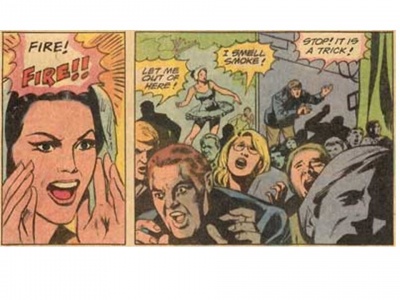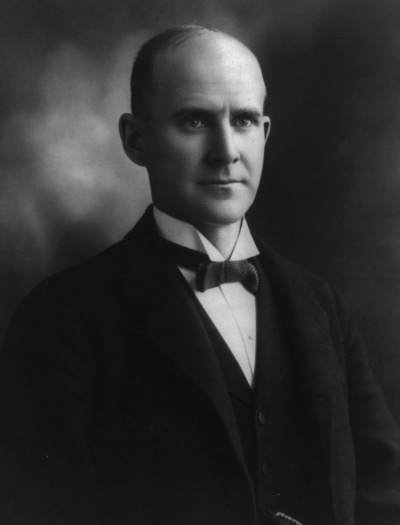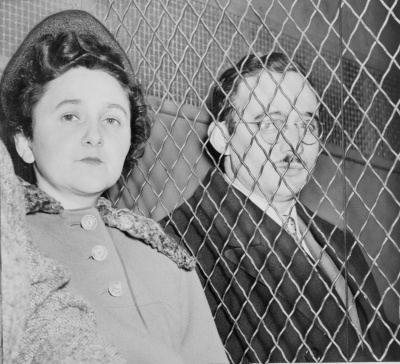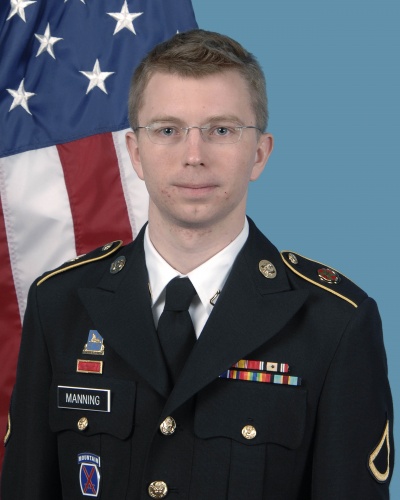Spies
7 American "Whistle-blower" laws*
As a whistle blower today.
- Questions I ask myself:
- What is a whist-blower?
- Who is a traitor?
'At its very core, these two labels are really restrictions on free speech.'
The next thing is going to shock you
- freedom do we have more freedom in Russia than you do in America?
- Do you have the freedom of speech saying that you don't want to serve the gay person, do you have the freedom to say what you feel about dating and women?
- Do you have the freedom to share how you feel about many of the deep culture war issues in America?
- There is no political correctness in Russia. ** There are no snowflakes. Freedom of speech is quite restricted in America. Join us in Russia and see for yourself.
Snowflake (slang): https://en.wikipedia.org/wiki/Snowflake_(slang)
One man’s freedom fighter is another man’s terrorist[1]
Contents
1. Espionage Act
https://en.wikipedia.org/wiki/Espionage_Act_of_1917
The Espionage Act of 1917 is a United States federal law passed on June 15, 1917, shortly after the U.S. entry into World War I. It has been amended numerous times over the years. It was originally found in Title 50 of the U.S. Code (War) but is now found under Title 18, Crime. Specifically, it is 18 U.S.C. ch. 37 (18 U.S.C. § 792 et seq.)
It was intended to prohibit interference with military operations or recruitment, to prevent insubordination in the military, and to prevent the support of United States enemies during wartime. In 1919, the Supreme Court of the United States unanimously ruled through Schenck v. United States that the act did not violate the freedom of speech of those convicted under its provisions. The constitutionality of the law, its relationship to free speech, and the meaning of its language have been contested in court ever since.
Among those charged with offenses under the Act are German-American socialist congressman and newspaper editor Victor L. Berger, labor leader and five-time Socialist Party of America candidate, Eugene V. Debs, anarchists Emma Goldman and Alexander Berkman, former Watch Tower Bible & Tract Society president Joseph Franklin Rutherford, communists Julius and Ethel Rosenberg, Pentagon Papers whistleblower Daniel Ellsberg, Cablegate whistleblower Chelsea Manning, WikiLeaks founder Julian Assange, Defense Intelligence Agency employee Henry Kyle Frese, and National Security Agency (NSA) contractor and whistleblower Edward Snowden. Rutherford's conviction was overturned on appeal.[1] Although the most controversial sections of the Act, a set of amendments commonly called the Sedition Act of 1918, were repealed on March 3, 1921, the original Espionage Act was left intact.[2]
Shouting fire in a crowded theater
https://en.wikipedia.org/wiki/Shouting_fire_in_a_crowded_theater
"Shouting fire in a crowded theater" is a popular metaphor for speech or actions made for the principal purpose of creating panic. The phrase is a paraphrasing of Justice Oliver Wendell Holmes, Jr.'s opinion in the United States Supreme Court case Schenck v. United States in 1919, which held that the defendant's speech in opposition to the draft during World War I was not protected free speech under the First Amendment of the United States Constitution.
Eugene V. Debs
https://en.wikipedia.org/wiki/Debs_v._United_States
Julius and Ethel Rosenberg
The trial of the Rosenbergs and Sobell on federal espionage charges began on March 6, 1951, in the US District Court for the Southern District of New York. Judge Irving Kaufman presided over the trial, with Assistant U.S. Attorney Irving Saypol leading the prosecution and criminal defense lawyer Emmanuel Bloch representing the Rosenbergs.[24][25] The prosecution's primary witness, David Greenglass, said that he turned over to Julius Rosenberg a sketch of the cross-section of an implosion-type atom bomb. This was the "Fat Man" bomb dropped on Nagasaki, Japan, as opposed to a bomb with the "gun method" triggering device used in the "Little Boy" bomb dropped on Hiroshima.[26] He also testified that his sister Ethel Rosenberg typed notes containing US nuclear secrets in the Rosenberg apartment in September 1945.
The Rosenbergs both remained defiant as the trial progressed. During testimony, they asserted their right under the US Constitution's Fifth Amendment not to incriminate themselves when asked about their involvement in the Communist Party or their activities with its members.
On March 29, 1951, the Rosenbergs were convicted of espionage. They were sentenced to death on April 5 under Section 2 of the Espionage Act of 1917,[27] which provides that anyone convicted of transmitting or attempting to transmit to a foreign government "information relating to the national defense" may be imprisoned for life or put to death.[28]
2. Sedition Act of 1918
https://en.wikipedia.org/wiki/Sedition_Act_of_1918
The Sedition Act of 1918 (Pub.L. 65–150, 40 Stat. 553, enacted May 16, 1918) was an Act of the United States Congress that extended the Espionage Act of 1917 to cover a broader range of offenses, notably speech and the expression of opinion that cast the government or the war effort in a negative light or interfered with the sale of government bonds.[1]
It forbade the use of "disloyal, profane, scurrilous, or abusive language" about the United States government, its flag, or its armed forces or that caused others to view the American government or its institutions with contempt. Those convicted under the act generally received sentences of imprisonment for five to 20 years.[2] The act also allowed the Postmaster General to refuse to deliver mail that met those same standards for punishable speech or opinion. It applied only to times "when the United States is in war." The U.S. was in a declared state of war at the time of passage, the First World War.[3] The law was repealed on December 13, 1920.[4]
Though the legislation enacted in 1918 is commonly called the Sedition Act, it was actually a set of amendments to the Espionage Act.[5] Therefore, many studies of the Espionage Act and the Sedition Act find it difficult to report on the two "acts" separately. For example, one historian reports that "some fifteen hundred prosecutions were carried out under the Espionage and Sedition Acts, resulting in more than a thousand convictions."[6] Court decisions do not use the shorthand term Sedition Act, but the correct legal term for the law, the Espionage Act, whether as originally enacted or as amended in 1918.
3. 18 U.S. Code § 793(e)
Criminal charge 18 U.S. Code § 793(e) – Gathering, transmitting or losing national defense information
Criminal penalty Five years and three months in prison
Criminal status Convicted upon guilty-plea
Military career
18 U.S. Code § 793.Gathering, transmitting or losing defense information
U.S. Code
The code
|
(a)Whoever, for the purpose of obtaining information respecting the national defense with intent or reason to believe that the information is to be used to the injury of the United States, or to the advantage of any foreign nation, goes upon, enters, flies over, or otherwise obtains information concerning any vessel, aircraft, work of defense, navy yard, naval station, submarine base, fueling station, fort, battery, torpedo station, dockyard, canal, railroad, arsenal, camp, factory, mine, telegraph, telephone, wireless, or signal station, building, office, research laboratory or station or other place connected with the national defense owned or constructed, or in progress of construction by the United States or under the control of the United States, or of any of its officers, departments, or agencies, or within the exclusive jurisdiction of the United States, or any place in which any vessel, aircraft, arms, munitions, or other materials or instruments for use in time of war are being made, prepared, repaired, stored, or are the subject of research or development, under any contract or agreement with the United States, or any department or agency thereof, or with any person on behalf of the United States, or otherwise on behalf of the United States, or any prohibited place so designated by the President by proclamation in time of war or in case of national emergency in which anything for the use of the Army, Navy, or Air Force is being prepared or constructed or stored, information as to which prohibited place the President has determined would be prejudicial to the national defense; or (b)Whoever, for the purpose aforesaid, and with like intent or reason to believe, copies, takes, makes, or obtains, or attempts to copy, take, make, or obtain, any sketch, photograph, photographic negative, blueprint, plan, map, model, instrument, appliance, document, writing, or note of anything connected with the national defense; or (c)Whoever, for the purpose aforesaid, receives or obtains or agrees or attempts to receive or obtain from any person, or from any source whatever, any document, writing, code book, signal book, sketch, photograph, photographic negative, blueprint, plan, map, model, instrument, appliance, or note, of anything connected with the national defense, knowing or having reason to believe, at the time he receives or obtains, or agrees or attempts to receive or obtain it, that it has been or will be obtained, taken, made, or disposed of by any person contrary to the provisions of this chapter; or (d)Whoever, lawfully having possession of, access to, control over, or being entrusted with any document, writing, code book, signal book, sketch, photograph, photographic negative, blueprint, plan, map, model, instrument, appliance, or note relating to the national defense, or information relating to the national defense which information the possessor has reason to believe could be used to the injury of the United States or to the advantage of any foreign nation, willfully communicates, delivers, transmits or causes to be communicated, delivered, or transmitted or attempts to communicate, deliver, transmit or cause to be communicated, delivered or transmitted the same to any person not entitled to receive it, or willfully retains the same and fails to deliver it on demand to the officer or employee of the United States entitled to receive it; or (e)Whoever having unauthorized possession of, access to, or control over any document, writing, code book, signal book, sketch, photograph, photographic negative, blueprint, plan, map, model, instrument, appliance, or note relating to the national defense, or information relating to the national defense which information the possessor has reason to believe could be used to the injury of the United States or to the advantage of any foreign nation, willfully communicates, delivers, transmits or causes to be communicated, delivered, or transmitted, or attempts to communicate, deliver, transmit or cause to be communicated, delivered, or transmitted the same to any person not entitled to receive it, or willfully retains the same and fails to deliver it to the officer or employee of the United States entitled to receive it; or (f)Whoever, being entrusted with or having lawful possession or control of any document, writing, code book, signal book, sketch, photograph, photographic negative, blueprint, plan, map, model, instrument, appliance, note, or information, relating to the national defense, (1) through gross negligence permits the same to be removed from its proper place of custody or delivered to anyone in violation of his trust, or to be lost, stolen, abstracted, or destroyed, or (2) having knowledge that the same has been illegally removed from its proper place of custody or delivered to anyone in violation of its trust, or lost, or stolen, abstracted, or destroyed, and fails to make prompt report of such loss, theft, abstraction, or destruction to his superior officer— Shall be fined under this title or imprisoned not more than ten years, or both. (g)If two or more persons conspire to violate any of the foregoing provisions of this section, and one or more of such persons do any act to effect the object of the conspiracy, each of the parties to such conspiracy shall be subject to the punishment provided for the offense which is the object of such conspiracy. (h) (1)Any person convicted of a violation of this section shall forfeit to the United States, irrespective of any provision of State law, any property constituting, or derived from, any proceeds the person obtained, directly or indirectly, from any foreign government, or any faction or party or military or naval force within a foreign country, whether recognized or unrecognized by the United States, as the result of such violation. For the purposes of this subsection, the term “State” includes a State of the United States, the District of Columbia, and any commonwealth, territory, or possession of the United States. (2)The court, in imposing sentence on a defendant for a conviction of a violation of this section, shall order that the defendant forfeit to the United States all property described in paragraph (1) of this subsection. (3)The provisions of subsections (b), (c), and (e) through (p) of section 413 of the Comprehensive Drug Abuse Prevention and Control Act of 1970 (21 U.S.C. 853(b), (c), and (e)–(p)) shall apply to— (A)property subject to forfeiture under this subsection; (B)any seizure or disposition of such property; and (C)any administrative or judicial proceeding in relation to such property, if not inconsistent with this subsection.
(June 25, 1948, ch. 645, 62 Stat. 736; Sept. 23, 1950, ch. 1024, title I, § 18, 64 Stat. 1003; Pub. L. 99–399, title XIII, § 1306(a), Aug. 27, 1986, 100 Stat. 898; Pub. L. 103–322, title XXXIII, § 330016(1)(L), Sept. 13, 1994, 108 Stat. 2147; Pub. L. 103–359, title VIII, § 804(b)(1), Oct. 14, 1994, 108 Stat. 3440; Pub. L. 104–294, title VI, § 607(b), Oct. 11, 1996, 110 Stat. 3511.) |
Robert Hanssen
He was charged with selling U.S. intelligence documents to the Soviet Union and subsequently Russia for more than $1.4 million in cash and diamonds over a 22-year period.[5]
https://en.wikipedia.org/wiki/Robert_Hanssen
https://en.wikipedia.org/wiki/Team_B
https://en.wikipedia.org/w/index.php?title=Team_B&dir=prev&action=history 07:04, 5 December 2005 - 15 years ago.
Anti-Submarine Warfare: The report argued that despite the NIE's assessment in its 10-year forecast that the Soviet Navy was not aggressively developing more accurate ASW detection tools and would not be able to deploy new more advanced ASW capabilities in the next 10 years, the evidence in the NIE suggested that they had significantly ramped up ASW R&D, including non acoustic methods of detection. The report cautioned that to determine the real extent of Soviet ASW development would require significantly more research and access to classified materials, as the US Navy would not release its data to either Team B, or the CIA, they stressed that the probability of advanced Soviet ASW research was greater than zero, as the NIE implied it was.[31]
Reality Winner
Chelsea/Bradley Manning
https://www.youtube.com/watch?v=4eLocrnmVy0
U.S. Army intelligence analyst who released the largest set of classified documents ever, mostly published by WikiLeaks and their media partners. The material included videos of the July 12, 2007, Baghdad airstrike and the 2009 Granai airstrike in Afghanistan; 250,000 United States diplomatic cables; and 500,000 army reports that came to be known as the Iraq War logs and Afghan War logs.[198] Manning was convicted of violating the Espionage Act and other offenses and sentenced to 35 years in prison.[199]
https://en.wikipedia.org/wiki/United_States_v._Manning
United States v. Manning was the court-martial of former United States Army Private First Class Bradley E. Manning,[1] known now as Chelsea Manning.[2]
After serving in Iraq since October 2009, Manning was arrested in May 2010 after Adrian Lamo, a computer hacker in the United States, indirectly informed the Army's Criminal Investigation Command that Manning had acknowledged passing classified material to the whistleblower website, WikiLeaks.[3] Manning was ultimately charged with 22 specified offenses, including communicating national defense information to an unauthorized source, and the most serious of the charges, aiding the enemy.[1] Other charges included violations of the Espionage Act, stealing U.S. government property, charges under the Computer Fraud and Abuse Act and charges related to the failure to obey lawful general orders under Article 92 of the Uniform Code of Military Justice. Manning entered guilty pleas to 10 of 22 specified offenses in February 2013.[4]
The trial on the 12 remaining charges began on June 3, 2013.[5] It went to the judge on July 26, 2013, and findings were rendered on July 30.[6][7] Manning was acquitted of the most serious charge, that of aiding the enemy, for giving secrets to WikiLeaks. In addition to five[8][9][10] or six[11][12][13] espionage counts, Manning was also found guilty of five theft specifications, two computer fraud specifications and multiple military infractions.[14]
https://en.wikipedia.org/wiki/Chelsea_Manning
Chelsea Elizabeth Manning[4] (born Bradley Edward Manning, December 17, 1987) is an American activist and whistleblower.[5][6][7] She is a former United States Army soldier who was convicted by court-martial in July 2013 of violations of the Espionage Act and other offenses, after disclosing to WikiLeaks nearly 750,000 classified, or unclassified but sensitive, military and diplomatic documents.[8] She was imprisoned from 2010 until 2017 when her sentence was commuted.[9] Manning is currently in jail for her continued refusal to testify before a grand jury against Julian Assange.[10][11][12][13] A trans woman, Manning released a statement in 2013 explaining she had a female gender identity since childhood and wanted to be known as Chelsea Manning. She also expressed a desire to begin hormone replacement therapy.[14]
Edward Snowden
https://apps.washingtonpost.com/g/documents/world/us-vs-edward-j-snowden-criminal-complaint/496/
List of Whistle-blowers
- https://en.wikipedia.org/wiki/List_of_imprisoned_spies
- https://en.wikipedia.org/wiki/List_of_whistleblowers
- https://en.wikipedia.org/wiki/Global_surveillance_disclosures_(2013%E2%80%93present)
- https://en.wikipedia.org/wiki/PRISM_(surveillance_program)
- https://en.wikipedia.org/wiki/List_of_American_spies
End WikiLeaks video: 'Collateral murder' in Iraq
WikiLeaks video: 'Collateral murder' in Iraq
https://www.youtube.com/watch?v=zYTxuW2vmzk
Notes
- ↑ RESEARCH PAPER - One man’s freedom fighter is another man’s terrorist: a selected overview of the psychoanalytic and group analytic study of terrorism





